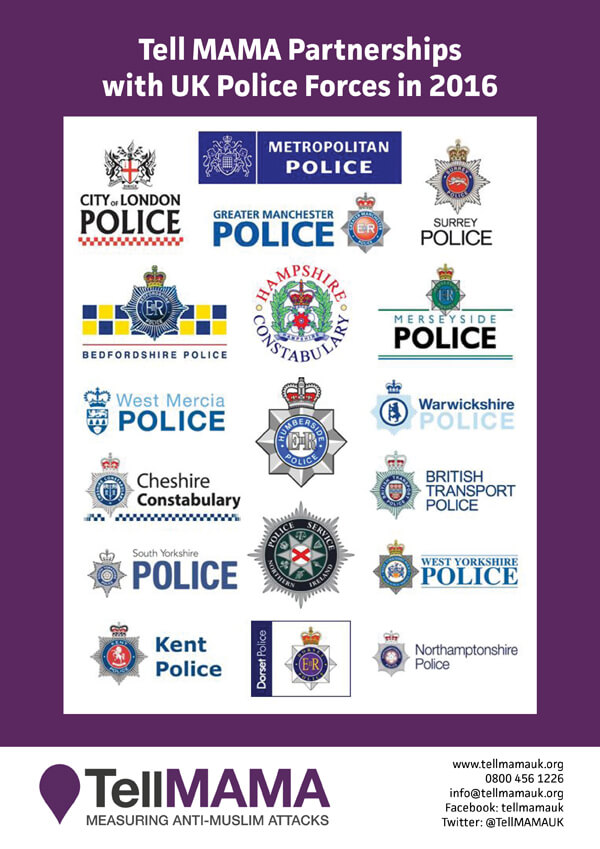Since 2012 Tell MAMA has successfully monitored anti-Muslim hatred in the UK, provided direct support to thousands of victims and raised public awareness of the impact that hate crimes have on individuals, families and communities.
In March 2015 Tell MAMA became one of only two community organisations to sign an agreement with the National Police Chief’s Council. This agreement enables police forces from around the country to share anti-Muslim hate crime data with Tell MAMA, so that we can build a more accurate national picture of incidents.
As a result, Tell MAMA now has partnership agreements in place with 18 separate UK police forces: Metropolitan, City of London, Greater Manchester, Merseyside, Cheshire, West Yorkshire, South Yorkshire, Humberside, Northamptonshire, Hampshire, Kent, Surrey, Bedfordshire, Dorset, Warwickshire, West Mercia, British Transport Police and Police Service of Northern Ireland.
Jeff Arnold, Tell MAMA’s Partnerships Officer, explains the importance of these relationships:
“These partnership agreements have helped Tell MAMA build stronger working relationships with police forces in 2016, giving us a better insight into the types of anti-Muslim hate crimes that are affecting people in different parts of the country. Although Tell MAMA is a completely independent organisation, it is vital that we work closely with police forces so that we can improve their knowledge of anti-Muslim hatred, ensure that all hate crimes are taken seriously and help victims to access information about their cases when necessary.”
Below are some common questions and answers about the data sharing between police forces and Tell MAMA:
- If I report a hate crime to Tell MAMA does that mean you will tell the Police about it?
No. Tell MAMA will only share your personal details with the police if you give us your consent, so that the police can make contact with you and investigate the crime. - If I report a hate crime to the Police will they automatically send my details to Tell MAMA?
No. The data we receive from police is always anonymised to protect the victim’s identity. Details such as the name, address and contact details of the victim are not disclosed.





